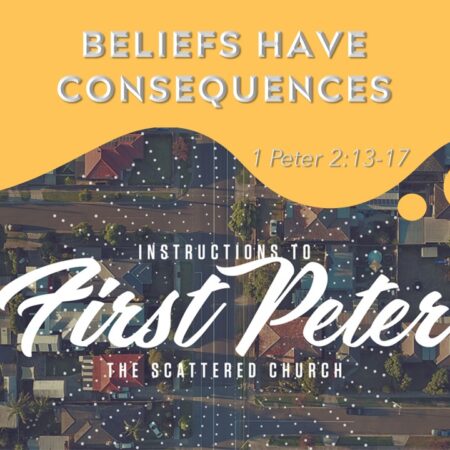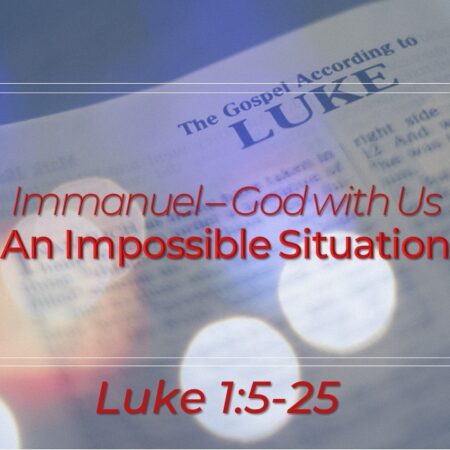1 Peter 2:13-17 Matthew 4:18-22 Acts 3:4-10; Acts 4:1-3; Acts 4:17-20; Hebrews 12:1-2 Responsibility as the key to Human Identity. Vaclav Havel writes: “Responsibility does establish identity, but we are…
"Responsibility" Tagged Sermons
Luke 1:5-25 Malachi 4:1-6 Malachi 4:5-6 Chuck Swindoll in his commentary on Luke writes: “Soon they were replaced by lesser men, however, and these compromising leaders held onto the Land…
Before we go into our biblical text, let me quote Chris Hedges, a war correspondent who witnessed plenty of power struggles:
“Not having to make moral choices frees you from a great deal of anxiety. It frees you from responsibility. And it assures that you always be wrapped in the embrace of the powerful as long as, of course, you will do or dance to he the tune of powers play… When you do what is right, you often have to understand that you are not going to be lauded and praised for it. Making a moral decision always entails risks, certainly to one’s career and to one’s standing in the community.” Chris Hedges
“It is perfectly possible for a man to be out of prison and yet not free- to be under no physical constraint and yet be a psychological captive, compelled to think, feel and act as the representatives of the national state, or of some private interest within a nation wants him to think, feel, and act… To him the walls of his prison are invisible and he believes himself to be free.” Aldous Huxley “A Brave New World Revisited”
“So, you see, that the world is governed by very different personages to what is imagined by those who are not themselves behind the scenes.” Benjamin Disraeli (1801-1884)
“The world is divided into three kinds of people – a very small group that MAKES THINGS HAPPEN, a somewhat larger group that WATCHES THINGS HAPPEN, and a great multitude that NEVER KNOWS WHAT HAS HAPPENED.” Dr. Nicholas Murray Butler (1862-1947)
Pastor Erwin Lutzer in his book subtitled “A defense of Christ in an Age of Tolerance” writes this hypothetical story:
“In A.D. 303, the Emperor Diocletian has issued a new order, requiring all people to attend the religious/political ceremony designed to unify the nation and revive lagging patriotism within the empire. Specifically, this ceremony involves burning a bit of incense and saying simply: CAESAR IS LORD. Those who do this receive a seal of approval; those who don’t might well be put to death.
Christians discussed the issue and what their response should be. The answer is not as obvious as it seems. For one thing, they actually would not have to stop worshiping the true God; after they have sworn their allegiance to Caesar as Lord, they are free to privately worship whatever god they wish. Every religion is tolerated; freedom to choose ones own god is generally accepted. Indeed, there is richness in diversity.
Second, this was not simply a religious decision, but a political one. Caesar was convinced that it was not possible to be a good citizen without affirming his lordship. The argument was that if one had allegiance to a god above Caesar he could not be trusted in time of national emergency, a war, for instance.
Third, this requirement was but once a year. Even if one did not tell a lie, forgiveness through Christ was readily available. Why not argue, as some did, “For a moment my mouth belongs to the Emperor, though my heart always belongs to Christ.”
Rome was cruel. Many converted pagans who were now in the church had observed firsthand the brutality of the Roman citizens.
If Christ were seen as one option among many, Christians could give allegiance to other expressions of the divine. Why not find common ground, the central unity of all religions.
So the choice, strictly speaking, was not whether the Christians should worship Christ or Caesar; it was whether they would worship Christ AND Caesar.”
Edward Gibbon in “The Decline and Fall of the Roman Empire” stated:
“All religions were regarded by the people as EQUALLY TRUE, by the philosophers as EQUALLY FALSE, and by the politicians as EQUALLY USEFUL.”
C.S. Lewis under the title: A GRIEF OBSERVED makes this comment after grieving the death of his wife, Joy:
“What sort of a lover am I to think so much about my affliction and so much less about hers? Even the insane call, ‘Come back,’ is all for my own sake. I never even raised the question whether such a return, if it were possible, would be good for her. I want her back as an ingredient in the restoration of my past. Could I have wished her anything worse? Having got once through death, to come back and then, at some later date, have all her dying to do over again? They call Stephen the first martyr. Hadn’t Lazarus the rawer deal?”
R.C. Sproul comments about this verse:
“I will never obey the truth of God apart from the power, grace, and assistance of the Spirit. We are living in strange times in terms of how the church functions. We have been caught up with a fierce desire to find a way to relate to a culture that has been immunized to Christianity. We try to find new methods to reach the lost. The motivation is righteous, because we should have compassion for the lost. The danger comes when we ask the lost how they want to come into the kingdom of God, how they want to worship God, and how they want to hear God’s Word, and then tailor our method to their tastes and preferences. THAT IS FATAL. Sooner or later the church must come back to confidence in God’s way of doing God’s work, because the Bible does give us A BLUEPRINT FOR EVANGELISM.
…It is accomplished by the method of proclaiming the Word of God, which, as Peter says here, changes lives and purifies souls through the power of the Holy Spirit.
…We must never negotiate those fundamental, biblical methods of worship, preaching, evangelism, and spiritual growth.”




